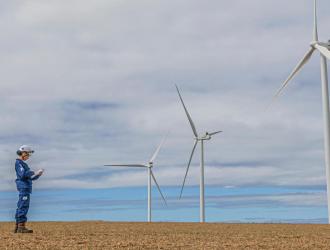News
12/17/2024
Renewable energies are intermittent by nature, which represents a challenge when it comes to integrating them into the power grid. How can a stable and reliable supply of renewable electricity be fed into the grid, whatever the time of day or weather conditions? This critical question for developing renewable energy production worldwide prompted TotalEnergies to team up with the Technical University of Denmark (DTU) to build a pilot hybrid power plant. Inaugurated on October 21, 2024, it will enable researchers from the Company and the university to carry out tests aimed at optimizing the integration of solar and wind energy into the power grid.









